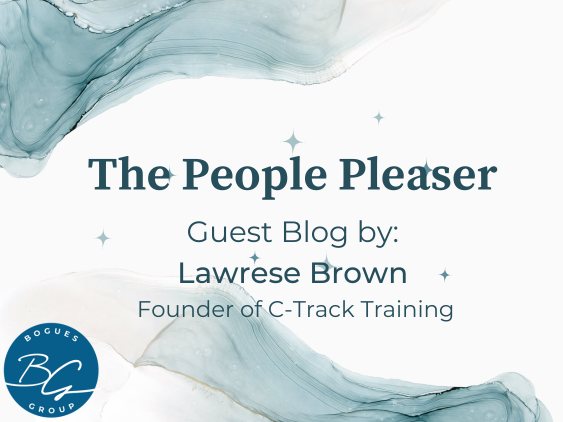We all know one, and many of us are one.
We are the colleagues and friends that measure our success by how ‘good’ we are to others, so we:
- Say ‘we should all improve’ instead of ‘I need you to improve’ when asking others to change their behaviors so they don’t feel called out.
- Over-emphasize that both sides have good points when resolving conflict among others so that no one feels offended.
- Say ‘yes’ without hesitation to any request for our time so that everyone feels supported.
These ‘good’ behaviors lead to burnout because:
- Our indirect language means people aren’t held accountable for their behaviors, and those behaviors never change.
- Continuously playing politics means we don’t draw boundaries, give consequences or take a stand on tough topics.
- Extending yourself to support others, but not asking for help from others leads to imbalance, draining relationships.
Being a people pleaser means you are welcoming, receptive, and supportive of others needs, but indecisive and self-sacrificing towards your own.
Preventing burnout means developing the skills needed to build balanced relationships, including:
- Being more direct about your needs, wants, and goals without lingering too long on how they could be received.
- Taking a pause to consider how fulfilling a request will impact you rather than focusing exclusively on how much the other person will appreciate you if you do it.
- Sitting with tension during conflict without rushing to play peacemaker so that you can discern when to accommodate vs. when to push for needs to be acknowledged and met.
As the saying goes, how can you be good to others if you aren’t good to yourself? The latter is the key to preventing burnout and improving mental health.
As a work-coach, my specialty is supporting people pleasers in developing the self-awareness and self-leadership skills that enable them to build reciprocal relationships, to directly communicate expectations and needs, and to move away from waiting for others permission/validation to standing in your personal authority. If you’re interested in coaching, schedule a consultation here.

